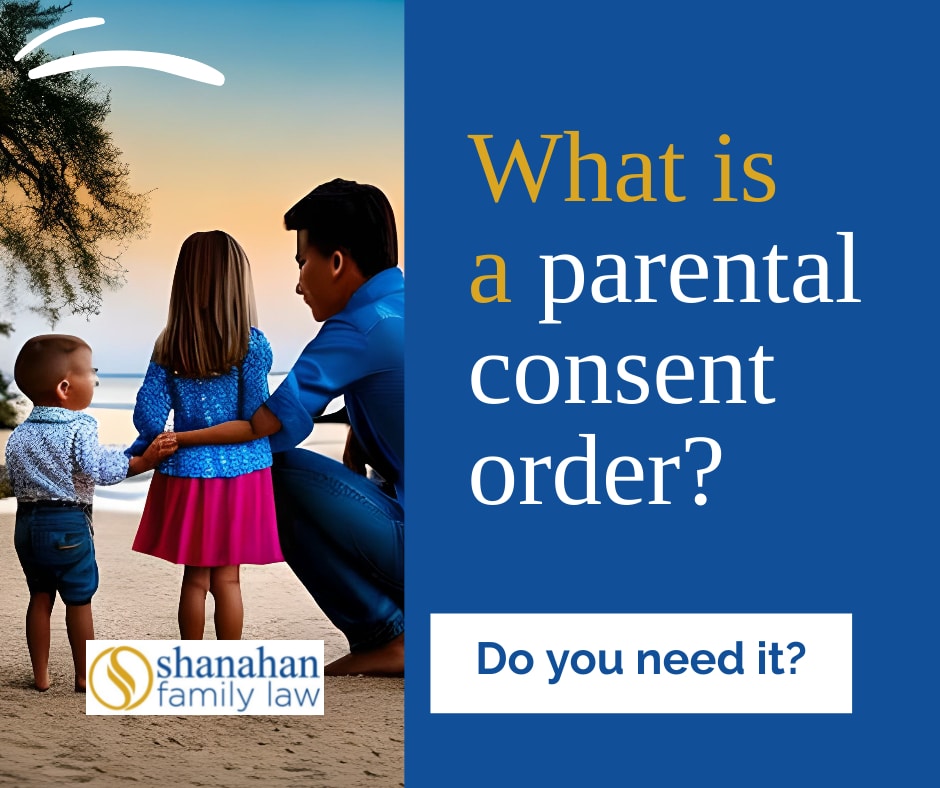Why parental consent orders is important?
 Stability is a critical part of a healthy upbringing. Working together for your child’s best interests is vital to their welfare. Divorced couples who remain civil have a clear advantage when co-parenting.
Stability is a critical part of a healthy upbringing. Working together for your child’s best interests is vital to their welfare. Divorced couples who remain civil have a clear advantage when co-parenting.
Developing parenting arrangements begins with a parenting plan. In the previous parenting plan article, we discussed the role of parenting plans. The next step for most couples is to seek a parenting order to legally establish each party’s parental responsibilities. The legal force behind parenting consent orders makes them the recommended form of parental arrangement. Child support is a separate issue from parenting orders or a property settlement.
Consent order objectives
Above all else, a consent order’s core objective is to protect the child’s interests. Under the Family Law Act, parental consent orders seek to achieve this in several ways:
- Children should know and receive the care of both parents;
- Orders should ensure children spend time and communicate with both parents and any other relative significant to their care, regularly;
- Parents are jointly responsible for the upbringing of their children;
- Parents should cooperate in planning for their child’s future;
- Children should be able to enjoy their culture and associate with people who share that culture.
Along with the child’s best interests, the above factors emphasise parental responsibilities. How do parental consent orders handle these issues?
Child’s best interests
Two primary considerations govern the test for determining a child’s best interests:
- The child should have a meaningful relationship with both parents;
- Protection for the child from physical or psychological abuse or exposure to such abuse.
While both points are important, the second will always precede the first.
Other considerations include the following:
- The nature of the child’s relationship with both parents and other relatives;
- The degree to which each parent has sought to fulfil their responsibilities;
- The effects of changing a child’s circumstances, including their ability to have a relationship with both parents and other relatives;
- The expense and practicality of a child maintaining a relationship with both parents.
Equal shared parental responsibility
Parental responsibility means all the obligations a parent has for their child’s welfare. The Court presumes that each party should have equal shared responsibility. With equal responsibility, parents should jointly make major long-term decisions for their children. Major long-term decisions include:
- Planning for a child’s current and future education;
- Maintaining a child’s religious and cultural development;
- Care related to the child’s health;
- Altering a child’s living arrangements in ways that would inhibit their ability to see a parent.
Equal shared parental responsibility relates to parents’ rights and duties deciding their child’s upbringing. It doesn’t imply that parents should spend equal time with their children.
Applying for consent orders
When you have a parenting plan in place, you may submit it to the Court to have it turned into a parental consent order. We highly recommend seeking legal advice first to ensure the Court grants the order the first time. If the Family Court rejects an application, you must spend extra time and money reapplying. Our previous article about the divorce cost includes a detailed rundown of family law fees.
For DIY consent orders, you can read this blog.
Breaching a consent order
Since parental consent orders are legally binding, breaching them will attract penalties. The nature of the penalty depends on several factors. The Court will consider the severity of the breach and the frequency of violations.
Initially, the court may:
- Order the offending party to attend a parenting program from an approved counselling service;
- Alter the order to allow the other party to recoup time lost with the child or other favourable arrangements.
If a parent continues to contravene the order, the Court may impose more severe consequences, including:
- Covering any losses incurred from the breach;
- Paying the other parent’s legal expenses;
- Community service;
- A fine or jail term of up to one year.
Parties can avoid a breach by offering a reasonable excuse. Reasonable excuses include the following:
- You didn’t understand your obligations under the order;
- You believed your actions were necessary to protect the child’s health and safety;
- The length of the breach was no longer than was required to protect the child’s health and safety.
If one parent believes the order isn’t practicable, engaging a family dispute resolution practitioner can help co-parents agree on new terms.
Seek legal assistance for your parenting arrangements
Ensuring your parental consent orders are correctly drafted is vital to successful co-parenting. With expert legal advice, you can be confident the Court will accept your parenting arrangements. Organisations such as Legal Aid Queensland can provide free legal advice to co-parents. If you are wanting to improve your co-parenting relationship, we advise reviewing our complete list of co-parenting apps.
Alternatively, Shanahan Family Law is ideally placed to provide legal advice for your application. Contact us today to set up an initial free discovery call.

